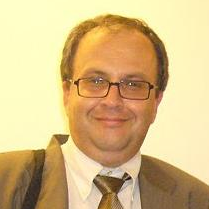Sustainability in Electrical Engineering II
A special issue of Sustainability (ISSN 2071-1050). This special issue belongs to the section "Sustainable Engineering and Science".
Deadline for manuscript submissions: closed (31 December 2020) | Viewed by 2744
Special Issue Editors
Interests: electrical engineering; mathematics; computer science; medicine
Special Issues, Collections and Topics in MDPI journals
Interests: synchronous generators for electric power systems; generator circuit breakers; electric traction motors for electric railway vehicles; applied mathematics for pollutant analysis in electric power plants
Special Issues, Collections and Topics in MDPI journals
Special Issue Information
Dear Colleagues,
The concepts of sustainability need to be addressed along with the understanding that sustainable development is not about certificates or awards, but instead it is about the vitality of life on Earth. Future needs for sustainable development are likely to include a change in human values through education, and an industrial metabolism shift through responsible practical actions. A sustainable industrial metabolism, integrating technical and ecological aspects is one of the greatest challenges of humanity within the present industrial world. In line with this idea, the performance of sustainable electrical processes, systems, and devices should be addressed. Research articles focusing on sustainability in electrical engineering and related topics are welcome for this Special Issue.
This Special Issue contains extended versions of best papers from the conference: 24th International Conference on Circuits, Systems, Communications and Computers, CSCC 2020, Chania, Crete Island, Greece, July 19-22, 2020, http://www.cscc.co.
Prof. Dr. Nikos E. Mastorakis
Assoc. Prof. Dr. Cornelia A. Bulucea
Guest Editors
Manuscript Submission Information
Manuscripts should be submitted online at www.mdpi.com by registering and logging in to this website. Once you are registered, click here to go to the submission form. Manuscripts can be submitted until the deadline. All submissions that pass pre-check are peer-reviewed. Accepted papers will be published continuously in the journal (as soon as accepted) and will be listed together on the special issue website. Research articles, review articles as well as short communications are invited. For planned papers, a title and short abstract (about 100 words) can be sent to the Editorial Office for announcement on this website.
Submitted manuscripts should not have been published previously, nor be under consideration for publication elsewhere (except conference proceedings papers). All manuscripts are thoroughly refereed through a single-blind peer-review process. A guide for authors and other relevant information for submission of manuscripts is available on the Instructions for Authors page. Sustainability is an international peer-reviewed open access semimonthly journal published by MDPI.
Please visit the Instructions for Authors page before submitting a manuscript. The Article Processing Charge (APC) for publication in this open access journal is 2400 CHF (Swiss Francs). Submitted papers should be well formatted and use good English. Authors may use MDPI's English editing service prior to publication or during author revisions.
Keywords
- Sustainability of electric power systems
- Applied mathematics for energy and the environment
- Computational methods in electrical and environmental engineering
- Sustainable electric railway systems
- Electric equipment and techniques for industrial waste treatment
- Mathematical models to correlate biomedicine and electrical engineering
- Strategic management for sustainability in electrical engineering
- Energy and exergy efficiency of industrial systems
- Renewable energy systems






